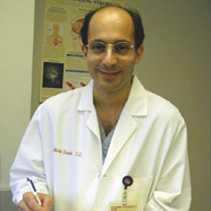“Can ECG detect heart disease?”
I am 45-year-old male and my doctor suspects I have heart disease and has scheduled an ECG. Can an ECG detect heart disease?
7 Answers
CardiologistCardiologist
ECG is limited to what it can identify, however it is the first step in consulting with a cardiologist. ECG can identify abnormal heart rhythm, abnormal conduction abnormalities, and abnormal congenital heart disease.
If an EKG (ECG)is abnormal it may be indicative that you may have heart disease. It is the initial step in a work-up for heart disease. If your EKG is abnormal please follow up with me to evaluate your cardiac health further. Just to note, not all abnormal EKG’s ( also known as an ECG) mean that you have heart disease.
Depending on the abnormality, an ECG may show that you have has a heart attack, have an electrical conduction problem in your heart that would show that you need a pacemaker, have a rapid heart beat that can be treated by medication. In athletic persons a slow heart rate would be acceptable and considered normal but the ECG would be initially considered abnormal. A thorough history is imperative at the same time an ECG is performed. If you have any further questions , please contact me and I will be happy to discuss them with you. Have a good day, Dr. Galvin
Depending on the abnormality, an ECG may show that you have has a heart attack, have an electrical conduction problem in your heart that would show that you need a pacemaker, have a rapid heart beat that can be treated by medication. In athletic persons a slow heart rate would be acceptable and considered normal but the ECG would be initially considered abnormal. A thorough history is imperative at the same time an ECG is performed. If you have any further questions , please contact me and I will be happy to discuss them with you. Have a good day, Dr. Galvin

Mark Rasak
Cardiologist
Usually not. ECG is a screening tool. If you have obvious abnormalities on the ECG, it may be helpful. But if it's normal, it doesn't mean you're out of the woods. We need to do a stress test to see if there are any abnormalities during exertion to help determine if there is a concern.
Sure, ECG is able to detect some heart disease.
ECG can detect some arrhythmia such as extra beat from various location of the heart, cardiac conduction abnormality In various severity.
ECG can detect myocardial ischemia, or acute myocardial infarction. ECG is the first thing to do if the patient has the chest pain or shortness of breathing .
Of course, ECG has limitation. It can miss the problems if the abnormality occurs intermittently. The HOLTER monitor can continually record 24-48hours ,even a few weeks long ECG. The problems can be detected in higher rate.
ECG can detect some arrhythmia such as extra beat from various location of the heart, cardiac conduction abnormality In various severity.
ECG can detect myocardial ischemia, or acute myocardial infarction. ECG is the first thing to do if the patient has the chest pain or shortness of breathing .
Of course, ECG has limitation. It can miss the problems if the abnormality occurs intermittently. The HOLTER monitor can continually record 24-48hours ,even a few weeks long ECG. The problems can be detected in higher rate.
An ECG can certainly detect an abnormality of the electrical activity of the heart which may reflect an enlarged heart or a heart not getting enough oxygen or a heart with an abnormal rhythm and many other pathologies. It is the first diagnostic test in assessing a person's heart. The limitation of the ECG is that it is not specific enough in general to make an accurate diagnosis and it is not sensitive enough to pick up many cardiac conditions. Based on your symptoms and physical findings and the ECG, your doctor may advise additional tests that are more likely to indicate what the problem, if any, is.






